Related Research Articles

The University of California, San Francisco (UCSF) is a public land-grant research university in San Francisco, California. It is part of the University of California system and is dedicated entirely to health science and life science. It conducts research and teaching in medical and biological sciences.
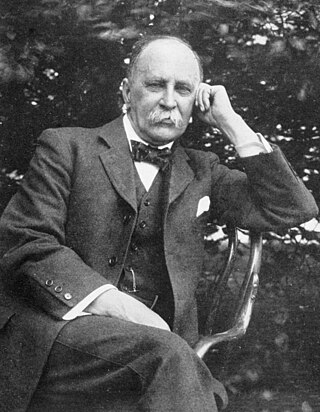
Sir William Osler, 1st Baronet, was a Canadian physician and one of the "Big Four" founding professors of Johns Hopkins Hospital. Osler created the first residency program for specialty training of physicians, and he was the first to bring medical students out of the lecture hall for bedside clinical training. He has frequently been described as the Father of Modern Medicine and one of the "greatest diagnosticians ever to wield a stethoscope". Osler was a person of many interests, who in addition to being a physician, was a bibliophile, historian, author, and renowned practical joker. Outside of medicine, he was passionate about medical libraries and medical history and among his achievements were the founding of the History of Medicine Society, at the Royal Society of Medicine, London. In the field of librarianship he was instrumental in founding the Medical Library Association of Great Britain and Ireland, the Association of Medical Librarians with three others, including Margaret Charlton, the medical librarian of his alma mater, McGill University. He left his large history of medicine library to McGill, where it continues to exist as the Osler Library.

Harvey Williams Cushing was an American neurosurgeon, pathologist, writer, and draftsman. A pioneer of brain surgery, he was the first exclusive neurosurgeon and the first person to describe Cushing's disease. He wrote a biography of physician William Osler in three volumes.

John William Michael Bliss (1941–2017) was a Canadian historian and author. Though his early works focused on business and political history, he subsequently authored several important medical biographies, including of Sir William Osler. Bliss was also a frequent commentator on political events and issues. He was an Officer of the Order of Canada.

The University of Texas Medical Branch (UTMB) is a public academic health science center in Galveston, Texas, United States. It is part of the University of Texas System. UTMB includes the oldest medical school in Texas, and has about 11,000 employees. In February 2019, it received an endowment of $560 million.
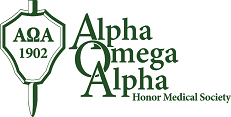
Alpha Omega Alpha Honor Medical Society (ΑΩΑ) is an honor society in the field of medicine.

Maude Elizabeth Seymour Abbott was a Canadian physician, among Canada's earliest female medical graduates, and an internationally known expert on congenital heart disease. She was one of the first women to obtain a BA from McGill University.
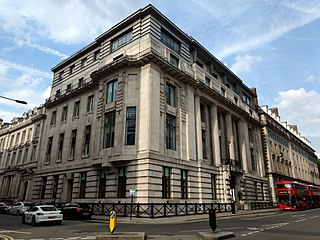
The Royal Society of Medicine (RSM) is a medical society based at 1 Wimpole Street, London, UK. It is a registered charity, with admission through membership.

The Johns Hopkins University School of Medicine (JHUSOM) is the medical school of Johns Hopkins University, a private research university in Baltimore, Maryland. Founded in 1893, the School of Medicine shares a campus with Johns Hopkins Hospital and Johns Hopkins Children's Center, established in 1889.

William Bennett Bean was an internist, medical historian, teacher and collector.
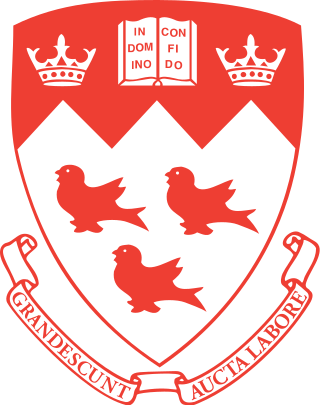
McGill University is an English-language public research university located in Montreal, Quebec, Canada. Founded in 1821 by royal charter, the university bears the name of James McGill, a Scottish merchant whose bequest in 1813 established the University of McGill College. In 1885, the name was officially changed to McGill University. With more than 39,000 students, it is one of the largest universities in Canada by enrolment.

John P. McGovern was an American allergist, investor and philanthropist. He established the McGovern Allergy Clinic in Houston, Texas, created the Texas Allergy Research Foundation and the John P. McGovern Foundation, and co-founded the American Osler Society.

Serena Maria Auñón-Chancellor is an American physician, engineer, and NASA astronaut. She visited the ISS as a flight engineer for Expedition 56/57 on the International Space Station.
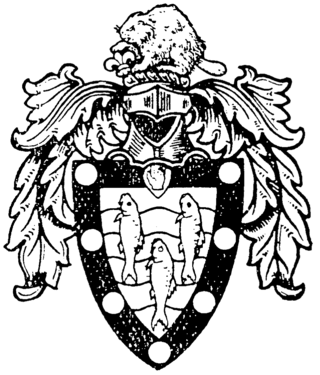
The Osler Club of London is a society founded in 1928 to encourage the study of the history of medicine, particularly amongst medical students, and to keep "green the memory of Sir William Osler". Membership in the club is open to medical men and women, medical students, and persons associated with the history of medicine and in allied sciences.

Carl H. June is an American immunologist and oncologist. He is currently the Richard W. Vague Professor in Immunotherapy in the Department of Pathology and Laboratory Medicine at the Perelman School of Medicine of the University of Pennsylvania. He is most well known for his research on T cell therapies for the treatment of several forms of cancers. In 2020 he was elected to the American Philosophical Society.

The History of Medicine Society (HoMS), at the Royal Society of Medicine (RSM), London, was founded by Sir William Osler in 1912, and later became one of the four founder medical societies of the British Society for the History of Medicine.

The American Osler Society is an organisation dedicated to the history of medicine and focuses on the "life, teachings, and ethical example of Sir William Osler". It works in co-operation with the Osler Library of the History of Medicine at McGill University and consists of a group of physicians, medical historians, and other related professions united by "the common purpose of keeping alive the memory of Sir William Osler".

Charles Stone Bryan is an American retired infectious disease physician, researcher, author and Heyward Gibbes distinguished professor emeritus of internal medicine at the University of South Carolina School of Medicine (UofSC). His contributions to medicine have included working on a formula for administering the maximum possible dose of penicillin to people with kidney failure which would treat the infection and avoid penicillin toxicity, and treating and writing on HIV/AIDS. He is also a noted medical historian and an authority on the life of William Osler.
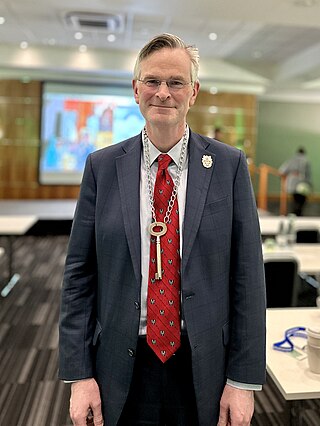
Christopher J. Boes is an American neurologist and historian of medicine. He holds the titles of professor of neurology, professor of history of medicine, director of the W. Bruce Fye Center for the History of Medicine, at the Mayo Clinic, Rochester, Minnesota, and since 2022 is the Mayo Clinic Designated Institutional Official (DIO). His research focuses on the management of headache, including migraine and trigeminal autonomic cephalalgias. His work in the field of history of medicine includes research on Sir William Gowers, Sir William Osler, Bayard Taylor Horton, Mary Broadfoot Walker, Betty Clements and Harry Lee Parker.
References
- ↑ "American Osler Society William B. Bean Student Research Award". Canadian Society for the History of Medicine / Société Canadienne d'histoire de la médecine. 1 January 2014. Retrieved 15 June 2023.
- ↑ Drain, Paul K.; Huffman, Stephen A. (2009). Caring for the World: A Guidebook to Global Health Opportunities. University of Toronto Press. p. 187. ISBN 978-0-8020-9548-0.
- ↑ "Bean Award - American Osler Society". www.americanosler.org. Retrieved 15 June 2023.
- 1 2 "William Osler's Connections to UTMB". UTMB. Archived from the original on 17 June 2023. Retrieved 17 June 2023.